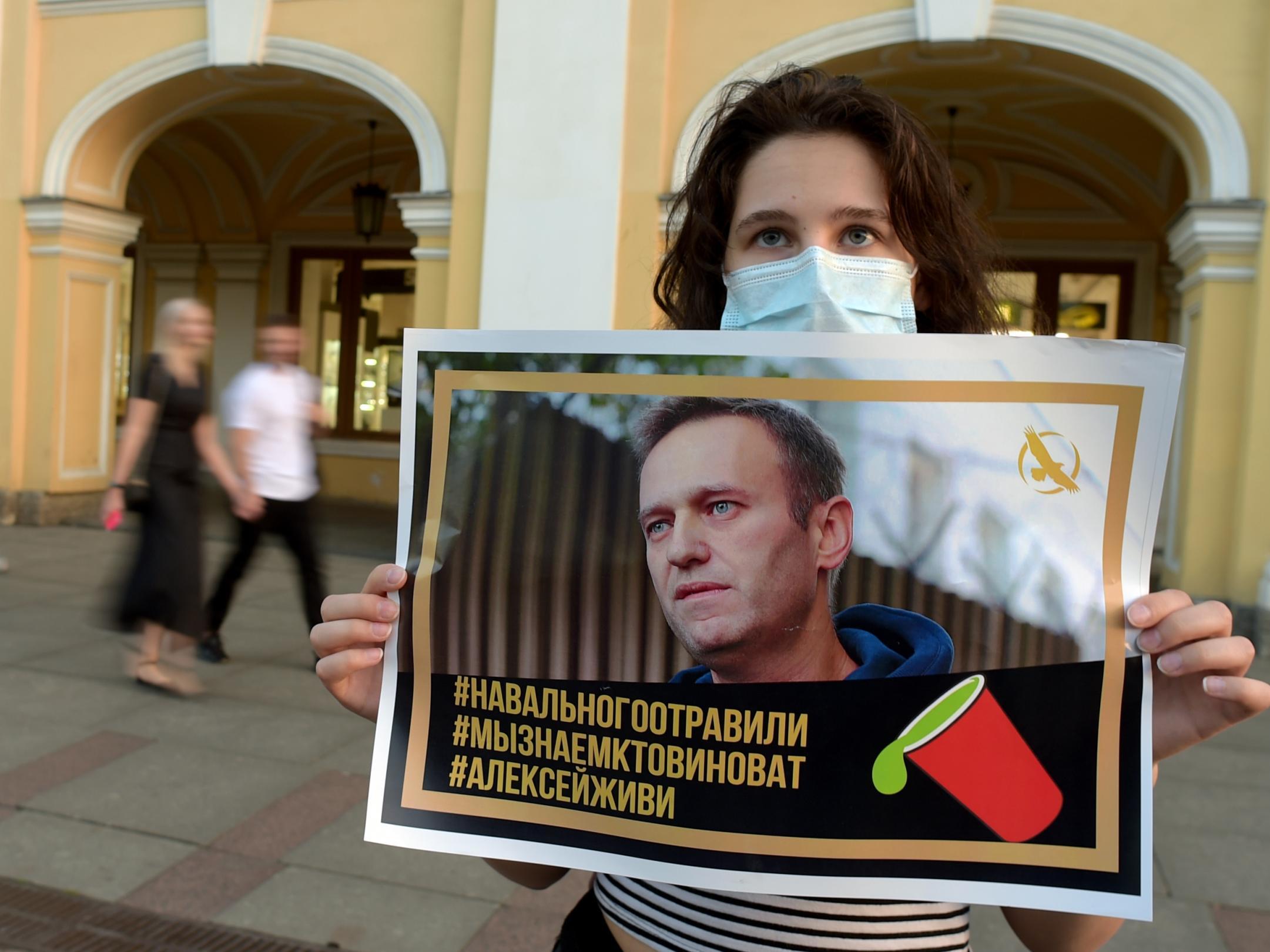Alexei Navalny: Russian opposition politician remains in coma after suspected poisoning as wife visits him in German hospital
Russian health officials say tests have not shown any poisons in his system

Your support helps us to tell the story
From reproductive rights to climate change to Big Tech, The Independent is on the ground when the story is developing. Whether it's investigating the financials of Elon Musk's pro-Trump PAC or producing our latest documentary, 'The A Word', which shines a light on the American women fighting for reproductive rights, we know how important it is to parse out the facts from the messaging.
At such a critical moment in US history, we need reporters on the ground. Your donation allows us to keep sending journalists to speak to both sides of the story.
The Independent is trusted by Americans across the entire political spectrum. And unlike many other quality news outlets, we choose not to lock Americans out of our reporting and analysis with paywalls. We believe quality journalism should be available to everyone, paid for by those who can afford it.
Your support makes all the difference.Kremlin critic Alexei Navalny, who fell gravely ill on Thursday after a suspected poisoning, was visited at a Berlin hospital on Sunday by his wife and a top aide.
Yulia Navalnaya, the politician’s wife, and aide Leonid Volkov made no comments to reporters when they visited Mr Navalny.
The corruption investigator was transferred to Germany from Omsk, in Siberia, on Saturday after doctors decided he was stable enough to be flown to the capital’s Charite hospital for emergency treatment.
The Russian opposition leader was admitted to an intensive care unit on Thursday. His loyal supporters – and family – believe the Kremlin had something to do with both Mr Navalny’s illness and the delay in transferring him to Germany.
Mr Navalny was on a flight back to Moscow from Siberia when he became ill – he was then taken to hospital after the plane made an emergency landing. There is speculation that the tea he was drinking while on the flight was spiked.
Russian newspaper Moskovsky Komsomolets has since reported that in the days leading up to Mr Navalny collapsing, he was under intense police surveillance.
According to the paper, Mr Navalny was being followed by plainclothes FSB officers and his movements were closely monitored via CCTV.
Despite Mr Navalny’s supporters insisting he was posioned, doctors in Omsk have denied that theory, instead blaming an undiagnosed metabolic disorder. According to them, a drop in the politician’s blood sugar level could have led to him losing consciousness.
Russian health officials also said on Saturday that no test had yet shown any poisons in his system.
The Kremlin has been accused of interfering in Mr Navalny’s transfer to Germany after doctors in Omsk initially said he was too unstable to move, but then withdrew that judgement when German doctors assessed the opposition leader and said he was fine to be flown via air ambulance.
Kira Yarmysh, Mr Navalny’s spokesperson, said on Twitter: “This is another proof that nothing was preventing Navalny from being transported, and it was necessary to do so as early as possible.”
Kremlin spokesman Dmitry Peskov has denied that any resistance to the transfer was political, saying that it was purely a medical decision.
Doctors at Charite hospital, in Berlin, have said that they will not comment on Mr Navalny’s condition until they are able to evaluate the results from extensive diagnostic tests which are being run now.
Like the majority of opposition politicians in Russia, Mr Navalny has been on the receiving end of various suspicious incidents, as well as being detained by law enforcement officers and harassed by pro-Kremlin groups.
While in prison last year, serving a sentence on charges of violating protest regulations, Mr Navalny was rushed to hospital following another suspected poisoning. Doctors later said he had suffered a severe allergic reaction and sent him back to his cell.
The most prominent member of Russia’s opposition, Mr Navalny campaigned to challenge Vladimir Putin in the 2018 presidential election but was barred from running. Since then, he has been promoting opposition candidates in regional elections, challenging members of the ruling party, United Russia.
His nonprofit Anti-Corruption Foundation has been exposing illicit activity among government officials, including some at the highest level. But he had to shut down the organisation last month after a financially devastating lawsuit from a businessman with close ties to the Kremlin.
Join our commenting forum
Join thought-provoking conversations, follow other Independent readers and see their replies
Comments